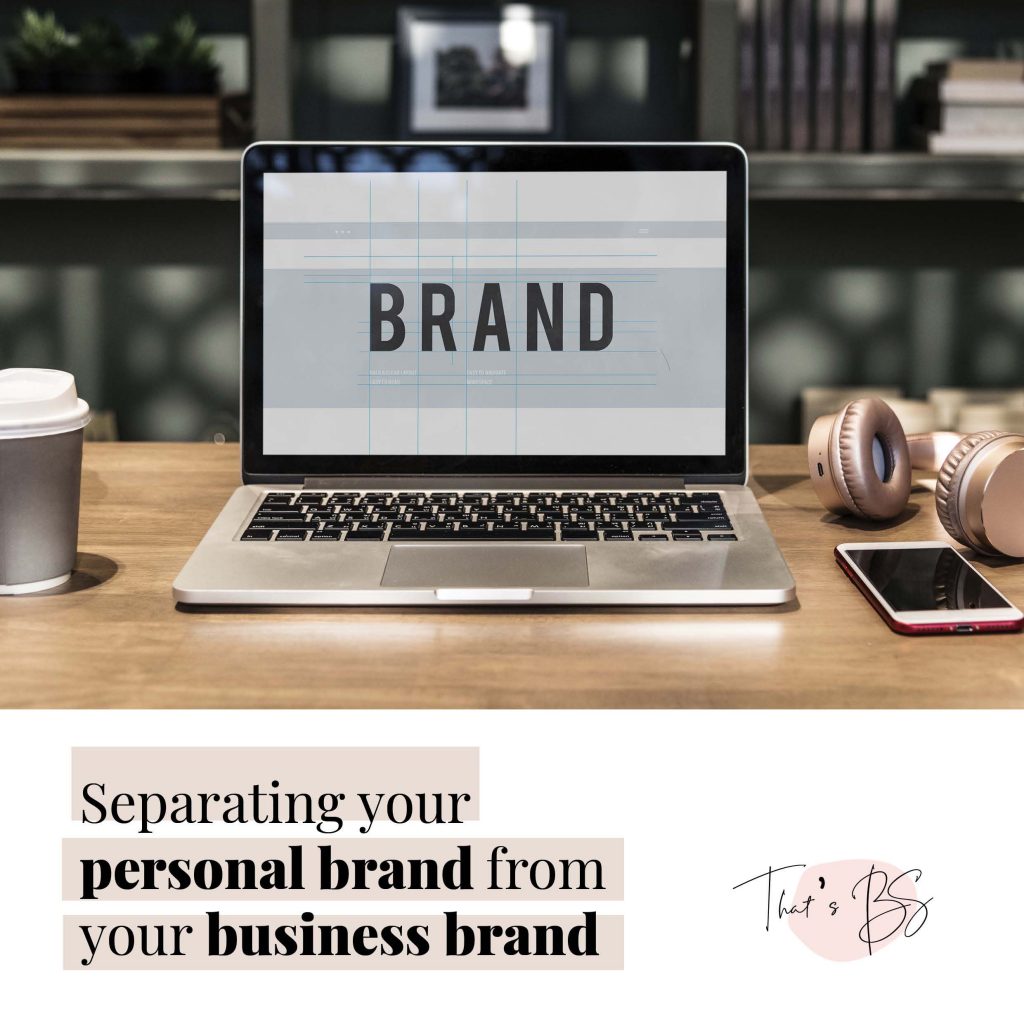My rule of thumb is… if anything ever happens to my personal brand, it shouldn’t affect my business brand and vice versa.
In this age where we are walking brands and billboards, it’s important to put boundaries in place. Especially because, you are not your business.
You own and control the business entity but you are not the business.
When we started Monochrome, I tried to make sure no one knew who was behind it until two years in when we couldn’t hide anymore. Only after then I started to grow my personal brand. From my personal brand I was able to draw traffic to Beso Media but still trying to maintain boundary.
The goal was that when people think of my name, my companies/brands come up, subconsciously they think of what I am capable of. When they think of my companies/brands, they shouldn’t think “Oh, Betty’s brand/company”. My companies’ brand stories should come up.
“Oh, Beso Media – the creative agency.” “Oh, Monochrome, the online fashion magazine”
The simplest reason would be that what if your personal brand leaves a bad taste in people’s mouths? What if they don’t like you or how you work? Whether or not you care about what people think of you, separating yourself from the business will do more for your business than thinking you don’t need your haters’ money.
Separating your personal brand from your business brand may deem a difficult task, but it doesn’t have to be. You also don’t entirely need to.
You simply need to draw some boundaries when it comes to how far you can go with aligning your personal brand to your business’.
I keep my personal brand separate from my companies because of the fact that I operate more than one business and brand.
Here are some of the things I’ve had to remember while working with brands:
Personal and Business Brands seed off each other
It doesn’t matter which one came before the other but eventually the lines do cross. It’s how you carry onwards that will determine that the two don’t hurt one another.
This is where you…
Use your personal brand as an extension of your business brand
And not the other way around.
Share your business’ milestones on your personal brand, but try not to talk about YOUR personal brand stuff on your business brand. Not only will it be weird but it will also blur the boundary lines.
Maintain Integrity
Whether we think about it or not our personal integrity feeds into the brand integrity of the business and because at the end of the day, most times people don’t buy your product, they buy from the people they like. It is an emotional buy. When people know you, they are far more enticed to buy your services.
A personal brand that reflects professional expertise drives business.
Brand Story
I always tell people to use the “we” voice when speaking in the brand’s voice. Even if it’s just you in the business. It promotes community, it creates room for growth for when you hire more people. It also allows people to understand that they aren’t speaking to you personally, but as a representative of the business. In the same breath, making sure people understand that there’s a human being behind the account and not a money-asking robot.
Many times I’ve walked into meetings where the people weren’t sure if they were dealing with Betty of Monochrome, Betty of Beso Media or Betty the creative. This is where my brands become intersectional. Because they share the same core values, work ethic and professionalism. What they get from Betty the creative entrepreneur is what they get from the Monochrome and Beso Media brands.
So to an extent you can’t separate your brands but you can decide how people perceive them. Everything is curate-able.
What are your thoughts? Please share with me…
Till next week,
Betty Sibeso (@bettysibeso)




